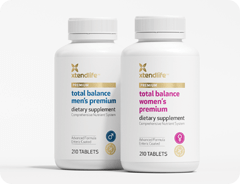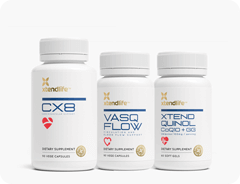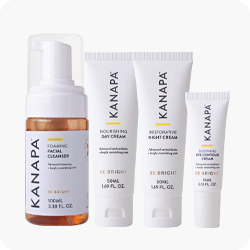Spirulina is a type of blue-green algae that was once found in Lake Texcoco, a body of water in the Valley of Mexico that served both the Aztecs and Mesoamericans. The algae were harvested and shaped into cakes that provided nutrients first to the populations that surrounded the lake, and later to the soldiers led by the conquistador Cortes after they invaded and destroyed the Aztec city of Tenochtitlan.
However, the public didn’t take any real interest in spirulina until it was used by NASA as a dietary supplement for astronauts on space missions.
Now, with everyone trying to come up with a new superfood, this 16th-century classic is again taking center stage for its nutrient-dense composition.
Not only is spirulina rich in protein, but it also includes essential amino acids including the natural fatty acid gamma-linoleic acid which can support your body’s healthy management of inflammation, as well as iron, multiple B vitamins including B12, B2, B3, B6 and B9, vitamins, A, C, D, and E as well as potassium, calcium, chromium, copper, iron, magnesium, phosphorus, selenium and zinc.
Spirulina’s Nutrients: A Closer Look
The nutritional benefits of spirulina are undeniable. The algae can help boost the immune system, potentially speeding recovery from illness and improving wound healing, while helping to flush waste from your system.
Here’s a closer look:
Potassium
While runners often grab a banana after a race, they might try spirulina instead. The potassium-rich food may help support muscles including the heart. Healthy heart function may help blood flow, which in turn supports healthy blood pressure. Potassium may also help protect against bone loss.
Protein
Protein is used by every cell in our bodies, and it not only helps us build and repair muscles when we exercise, but it also aids in the production of enzymes and hormones. When we include protein with every meal, we slow the digestive system, reducing the risk of blood glucose spikes, and keeping us feeling fuller for longer, aiding in weight management. (Ref. 1)
Calcium
While calcium is best known for supporting healthy bones and teeth, it also helps boost metabolism, manage the symptoms of PMS, and support heart health. Spirulina has around 26 times as much calcium as milk.
Vitamin A
The beta carotene found in plant sources such as spirulina helps promote a healthy immune system and normal cell growth and rejuvenation. It also acts as an antioxidant, helping your body manage free radicals and the damage that they can cause.
Iron
Iron not only helps our bodies metabolize protein, but it is also vital to the production of both red blood cells and hemoglobin, which carry oxygen throughout our bodies, feeding cells and muscles for optimum health.
Magnesium
Magnesium helps promote metabolism and bone development and plays a role in muscle and nerve function, blood glucose control, and heart and blood vessel health. (Ref. 2)
Manganese
Manganese is critical to bone health as well as the production of collagen for healthy, supple skin. It also plays a role in supporting healthy blood sugar and acts as an antioxidant to help manage free radicals.
Copper
Copper is an antioxidant and can play a role in the production of collagen, one of the key proteins that keep skin smooth and supple. It also plays a role in blood health by supporting healthy balanced cholesterol levels.
Phosphorus
Phosphorus is required by every one of the cells in our body helps us use carbohydrates and fats for fuel and encourages the repair of cells and tissues. It also plays a vital role in muscle contractions including the heart and supports the ability of nerves to signal pain – or pleasure. (Ref. 3)
Omegas-3, 6 and 9
Spirulina contains these essential fatty acids, which support brain and heart health and function. (Ref. 4)
Chlorophyll
The chlorophyll in spirulina may help remove waste from your system.
The Science Behind Spirulina
While studies have shown that spirulina may help avoid nutritional deficiencies in third-world countries – just as it did for NASA astronauts and the soldiers who decimated the Aztecs – more recent studies have looked at the potential for spirulina to improve health.
“Spirulina has potential for being a wonder food supplement, and the number of indications where spirulina is being utilized as an ideal dietary supplement is growing,” wrote researchers from the Department of Human Genetics and Faculty of Biomedical Sciences, Technology, and Research at India’s Sri Ramachandra University. (Ref. 5)
Researchers there reviewed numerous case studies in an effort to determine the effectiveness of organic spirulina as a nutritional supplement and found that the claims made by NASA in 1974 – which called spirulina “the best food of the future” – could be on the cusp of coming true.
Their research appeared in the Dove Press’s Journal of Nutrition and Dietary Supplements.
References:
- http://www.hsph.harvard.edu/nutritionsource/what-should-you-eat/protein/
- http://ods.od.nih.gov/factsheets/Magnesium-HealthProfessional/
- http://lpi.oregonstate.edu/infocenter/minerals/phosphorus/
- http://www.webmd.com/healthy-aging/omega-3-fatty-acids-fact-sheet
- Ravi, Maddaly, et al, The beneficial effects of spirulina focusing on its immunomodulatory and antioxidant properties, 2010, Nutrition and Dietary Supplements


 Supplements
Supplements Bundles
Bundles









